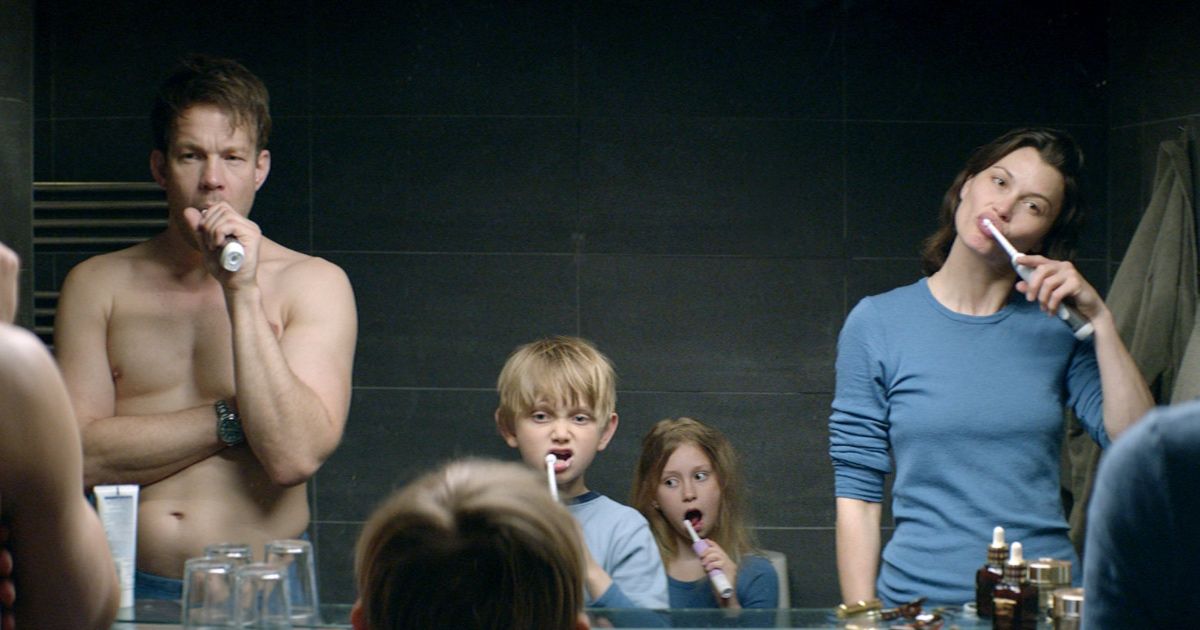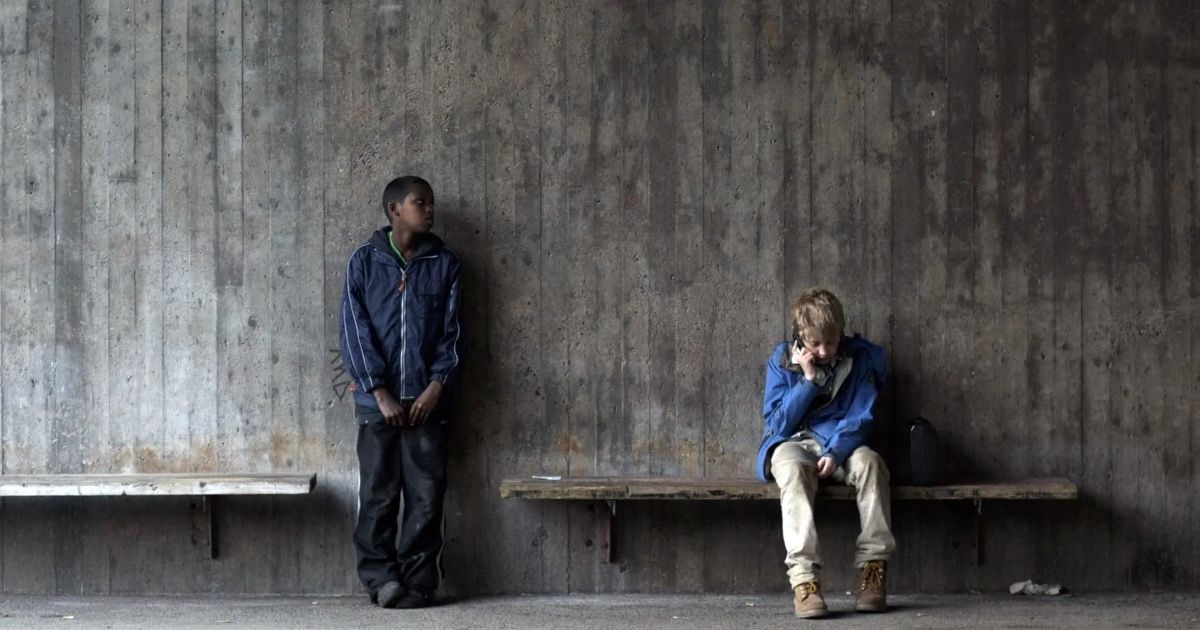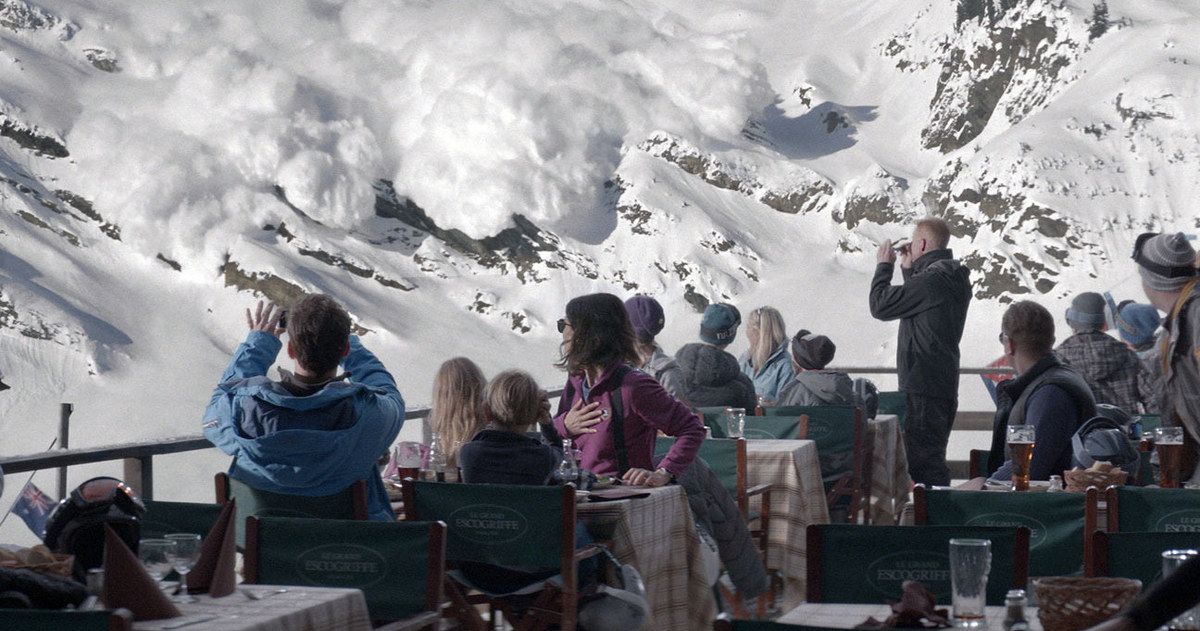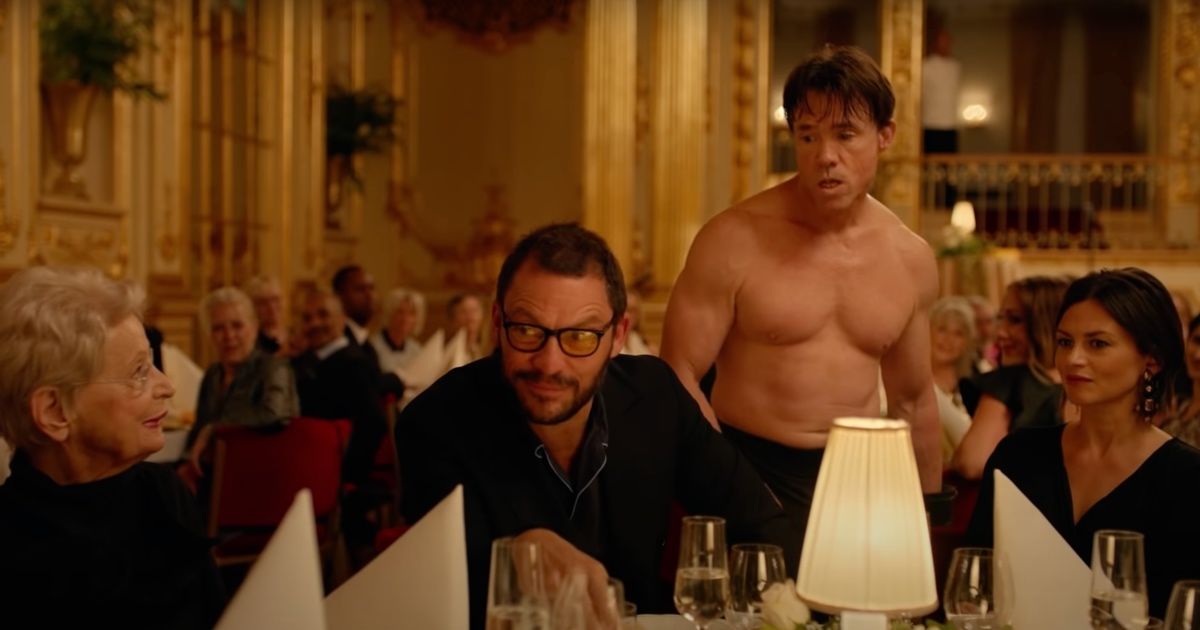Out of the three class brackets, the middle class is without a shadow of a doubt the most mundane. Poverty, economic hardship, crime, and daily struggle are often what filmmakers capture when their picture's narrative covers working-class life (think The Pursuit of Happyness, or the much better Ken Loach films). Nauseating affluence, a disregard for the impoverished, decadence, and shameless self-indulgence is often what is portrayed when film traverses the existence of the upper class (think Bridgerton, The Crown, and so on).
Yet, what about picturing those that are in the broad segment in between? There is little demand for the story of the guy that pays his rent on time and in full, works in recruitment, and has an unremarkable nuclear family. Yet, in Ruben Östlund’s case, deeply satirical writing and a sharp attunement to the small, often undetected absurdities of the middle class has allowed the filmmaker to be an exception.
The Scandinavian director has created many films that regularly mock the hypocrisy of Westernized, middle-class culture. The multi-award-winning filmmaker (one of the very few to have won multiple Palme d'Ors at Cannes) is slowly building an outstanding stable of films, with another, The Entertainment System Is Down due to premiere later this year. Here is his filmography, ranked.
6 The Guitar Mongoloid
Ruben Östlund’s filmmaking debut acted as an appetizer on a Swedish-Eurocentric menu of show-stopping entrées. The Guitar Mongoloid comprises an assembly of non-actors, who essentially play themselves. Set in the fictional city of Joteborg, the Swedish director’s introductory feature follows the stories of dysfunctional members of society, living on the outskirts of the city.
The drama particularly hones in on a 12-year-old boy with Down’s syndrome creating mediocre punk songs, a group of drunk men with a childish fascination for a gun, and a peculiarly euphoric woman. A film difficult to interpret comprehensively, The Guitar Mongoloid is oddly enjoyable nevertheless.
5 Involuntary
This 2008 comic tragedy draws upon several narrative strands, that double up as a collection of parallel stories. Der Ofrivilliga, known simply as Involuntary by us non-Swedish-speaking mortals, explores themes of decisiveness. In an anthology of unrelated tales, the film examines the importance of knowing when to put one’s foot down, and when to say no. Through a number of highly embarrassing scenarios around excessive alcohol consumption by teenagers and a highly opinionated teacher, the film finds its most cringe-inducing but sadly funny moments. The beauty can be found in the film's simplicity.
4 Play
2011’s Play was hit with a tirade of political and critical backlash upon its release, with many claiming that it was racist, or at the very least, not politically correct. However, other interpretations point toward it being merely a social commentary on class, and the oppressed having an equal opportunity to become the oppressor.
The film confronts the issue of black-and-white tensions in Gothenburg, Sweden, and specifically the instances of black-on-white crime as depicted. Play portrays a group of five Swedish-Somali boys who target three white middle-class boys, as they put them through a series of tests, in a case of psychological torment as they rob them of their phones and possessions.
3 Force Majeure
It was through 2014’s Force Majeure that Östlund’s credentials as a director of the highest caliber were recognized internationally. This dark comedy drama, one of the most honest movies about marriage, partly challenges the societal expectation of a father as the breadwinner and protector of his middle-class family, but also hurls acidic critiques at the ways in which we judge one another. It was remade with Will Ferrell and Julia Louis-Dreyfus in one of the most pointless remakes of all time, because this original film is a true masterpiece.
While on a skiing trip, a Swedish family encounters an avalanche, instead of trying to save his two children and wife, patriarch Thomas (Johannes Ba Kuhnke), makes a run for it, personifying the phrase, “Every man for himself.” When it turns out the avalanche is of a controlled nature, Thomas’ wife and kids are consequently troubled by his apparent cowardice and lack of understanding thereafter. With more damage to their personal relationships than any avalanche could have done, their idyllic holiday balances on tenterhooks. The film won the Jury Prize at Cannes, beginning an amazing run of three Östlund films in a row which won major awards at the film festival.
2 Triangle of Sadness
Östlund was in receipt of his second Palme d’Or at the Cannes Film Festival for his dark comedy flick, 2022's Triangle of Sadness, an impressive feat only a prestigious few have managed. The film is an uproarious commentary on social dimensions, surveying the landscape of the mega-rich and super-elite, making light of the preposterous nature of wealth, and more aptly the social constructs of class and how that indirectly taps into order, structure, and a hierarchical, almost food chain-like framework.
The director’s first solely English film, details a professional model couple, who because of their supreme natural beauty, and immaculate sartorial elegance are invited on an exclusive cruise on a mega-yacht, with an assemblage of elitist British arms makers, affluent Russian industrialists, and the worst kind of capitalists. Following a storm, the ship sinks, and its survivors live to see their capitalist ideals turned on their heads as they fight for survival on a beach on a deserted island, with the ship’s cleaner their only hope. At times, Triangle of Sadness seems as though it’s a little too aware of itself and there is little subtlety in the point it is making, that said, the film very literally wants to spew the detestable essence of narcissism and self-interest in our faces.
1 The Square
The Square really is a work of art, both literally in its subject-matter, and cinematically. The film won the Swedish artiste his maiden Palme d’Or at Cannes, with a picture that has middle-class altruism at its very core. One of the best movies that premiered at Cannes concerns Christian (Claes Bang), an art curator at a globally respected Swedish museum in Stockholm is responsible for overseeing a highly controversial exhibition.
After his phone and wallet are stolen, Christian begins a descent into an existential crisis, and his carefully curated mask starts to slip. Appearing as the embodiment of liberality, the satire hilariously breaks down this facade, exposing the suave art director for exactly what he is; a virtue-signaling hypocrite, whose steeped in prejudice himself. The Square is a movie that speaks to an inherent apathy among the white middle-class, people who simply don’t practice what they preach. Demanding equality, compassion, and care in theory, but not delivering it in practice, they are utterly eviscerated in The Square.







